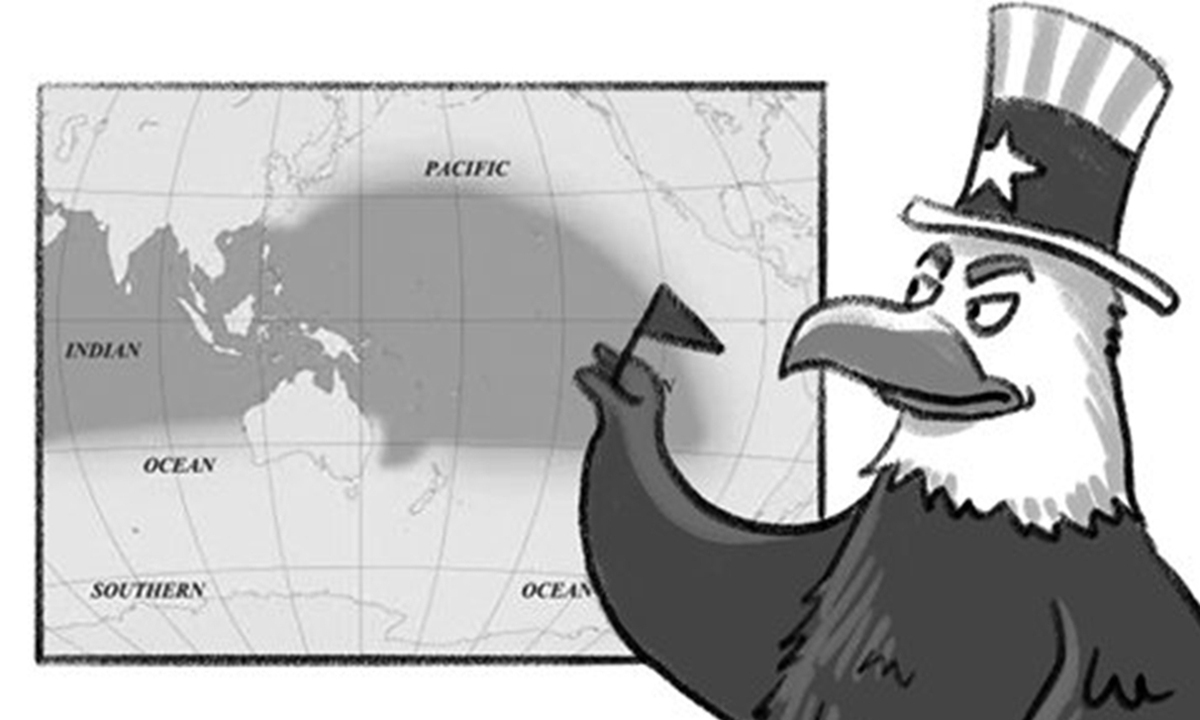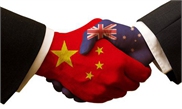
Illustration: Liu Rui/GT
The Financial Times (FT) on Sunday published an article, entitled, "China-Taiwan geopolitical rivalry fuels tensions in Pacific Islands." It argues that "dilemma over whether to recognize Taipei or Beijing feeds into underlying domestic conflicts." The Western world is not qualified to judge other country's diplomatic and strategic choices like an omniscient narrator.The article mentioned "opposition to China has dominated the headlines in the Solomons, Malaita and Guadalcanal, the largest island by area and second by population," and some are suspicious of Chinese aid to their homeland, among other smears against China such as creating debt trap and motivation behind increasing investment.
Western countries, in particular the US, together with the Taiwan authorities, have been blaming China for recent Solomon Islands unrest. It is groundless to attribute this to China's alleged influence in the South Pacific. They view the islands as a pawn controlled by other countries, out of their arrogant mind-set - whatever China does, it must have "evil intentions."
The FT article pointed out that "a total of 10 Pacific nations recognize China and only four Taiwan, which Beijing argues is a part of its territory." Such tone is ridiculous. What the FT really should ask is why the UK or the US recognize and have diplomatic ties with the Chinese mainland instead of Taiwan island.
The US has never paid much attention to the South Pacific in the past, except once occupied some islands there for nuclear testing. For many years, the South Pacific has been "outsourced" by the US to Australia, which considers the region as its backyard. The US did not really assist this region nor did it help the region in terms of economy or infrastructure.
After China initiated the Belt and Road Initiative, its relations with developing countries have been on the rise, the US believes that the growth of China's influence is eroding its own. As a result, the US became more involved in the South Pacific, not for peace, stability, or development, but to compete with China.
Another reason for the US to obstruct the South Pacific countries from developing relations with China is to help Taiwan island, which with only a few countries remaining to maintain "diplomatic" relations. If the number of Taiwan island's "allies" drops to zero, not only will it be a complete failure to the island, it will be a diplomatic frustration to the US.
As the US is using Taiwan island as a bargaining chip in its confrontation with China, it wishes to help maintain Taiwan's "diplomatic" ties with the South Pacific countries and the status quo across the Taiwan Straits.
As sovereign states, whether the South Pacific countries decide to have ties with the Chinese mainland or the Taiwan island should be based on their own interests, including economic development and people's welfare. The political and diplomatic influence of China is also prominent when it comes to the choice, as China is one of the permanent members of the UN Security Council, with the second largest economy.
In 2020, The Diplomat published a report saying "the $25 million in aid to Malaita (the Solomons' most populated island) has sparked concerns that Washington is aid for geopolitical gain vis-a-vis China." It's always been the practice of the US to use party politics to interfere in the internal affairs of other countries. If there is a pro-China party in a country, the US will support the opposition forces, as a cost-saving way to achieve its goals.
The US must have played a major role in the recent Solomon Islands riots, just as it triggered chaos in other countries through inciting political confrontation, supporting certain forces via public opinion, or directly providing money and political support. Was the US behind Australia's decision to send so-called peacekeeping troops to the Solomon Islands? It is very likely. And this is blatant military intervention.
A country is supposed to make its own diplomatic choices. But the US tends to view the issue under the China-US power game and adopt corresponding plans to interfere in others' domestic affairs. It would even stir up political infighting and social turmoil in other countries, jeopardizing regional peace and stability.
The author is an expert on China-US relations based in Shanghai. opinion@globaltimes.com.cn


